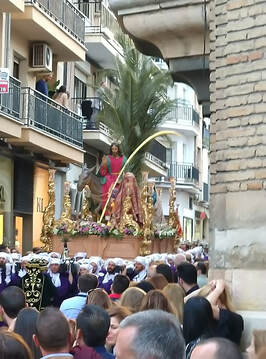 Friday before Holy Week. The final preparations are being made. The city streets are getting a big cleaning so they will be ready to receive the tens of thousands of people who will crowd them every evening this week. The grandstand has been built in front of city hall for all the local dignitaries and those who paid the special price to have the best seats. Fingers are crossed that the rain that we so desperately need holds off for a few more days. I’ve spent the past several minutes reconnecting with a local friend. I’ve been out of the country for a few weeks for work, and she’s asking me questions about my time in my country, my work, and the state of USA politics - locals are intrigued, confused, and also fearful about USA politics and how it effects the world. When we finally exhaust the USA questions, I turn the conversation to local news. What’s been happening while I’ve been gone? What’s the latest news on the drought and water rationing? Etc. Then, Anita asks the open-door question… “Do you like Semana Santa (Holy Week)?” I call these ‘open door questions’ because this is sacred ground. This is the place where culture and Jesus meet. This is the door being thrown wide open for a really good conversation about faith and belief. I have a choice in this moment: I can respond with a short yes or no, or I can stay curious and vulnerable and prepare myself to listen well and follow the path that will come from this simple question. I gladly accept the opportunity and respond, “Well, I like some things about it. I definitely have my favorite parts of the processions during the week. But I’m also curious about the crowds. There will be tens of thousands on the streets every night. But there are not tens of thousands in the churches on a normal week. I would guess there aren’t even a total of a few hundred in church on any given weekend.” Anita laughs and smiles and says, “Oh, you know how Spaniards are - We love our social gatherings! We love to be in the streets, seeing each other, going to the restaurants, being with friends and family. Most of the crowd isn’t even really watching the procession. We’re just there to be together, having fun, and staying out late into the night. Sure, there are some devoted believers. But that’s not normal.” “I didn’t think so,” I reply. “We have 33 Catholic churches in this town, but only 5 or 6 have active congregations. From what I have seen, there are only a handful of people in the typical church services each week, and most of them are older. Is that true?” Anita shrugs her shoulders and says, “I’m not an atheist, but I’m also not a believer.” Hmm… I wonder what that means? I quickly respond with, “I am a believer, but I’m a believer in Jesus. I’m a little confused by the processions because there is very little Jesus depicted in Holy Week. There is a whole lot of Mary, and the churches seem to be trying to out-do each other by putting on a show that is bigger and better than the others.” Anita responds with a hearty, “Yes! Exactly! I guess what I’m trying to say is that I’m not an atheist because I do believe, but I do not believe in the churches. There are some devoted believers in town, but they aren’t good people, in my opinion. They are judgmental and always trying to compete and out-do each other. If you don’t do things their way, then you’re out. If you don’t go to their church, then you don’t matter. I definitely do not believe in the church. The church has done so many terrible things. All throughout Spanish history, the church is somehow at the center of the mess. Actually, religion is at the center of a lot of problems all over the world. I don’t want to have anything to do with that. I think the current pope has been good and he has done amazing things for people. He has brought a lot of people to faith and back to church. But he can’t do it alone. The rest of the church needs to have that same heart for it to turn around.” I want to affirm Anita and be sure to share some truth. “I hear you. You’re not the first person to tell me that they believe, but they don’t like the ways of the church. You’re definitely not the first in Spain to tell me that your history has been marred by religion and war, and you’re right. I see it. It has done so much damage and so many people have been wounded by people who have called themselves Christians or who have claimed to be doing things in the name of the church and God. That’s why I say I follow Jesus. I believe in Jesus and the things he did and taught. All that other stuff muddies the water sometimes.” “Exactly,” Anita says again. “Semana Santa will be a big time and a big traditional holiday, but most of those people aren’t there for Jesus or the church. They’re there for social reasons. They’re there because of tradition. It’s fun, but it’s not really belief. It’s just a holiday.” I add, “well, I usually catch a few of the processions. I like to find the parts in them that ARE Jesus. It reminds me of the Easter story. My favorite one is the Palm Sunday procession with Jesus on the donkey and the live palm trees. That one is so beautiful! I love that he is riding a donkey into the city and everyone is cheering for him. Hard to believe that just a few days later, he is crucified. A huge turn of events in one week! My other favorite is the one on Thursday when Jesus is praying in the Garden of Gethsemane. I love that they have full grown olive trees and a life-size Jesus on that one. I’ll go to some of the processions, and I’ll seek out the Jesus parts.” I’m keenly aware of this sacred ground. Anita is sharing deep things from her heart. She is sharing her life and her beliefs with me. She is letting me have a glimpse into her culture and how she sees the church. I’m so grateful to have this opportunity to listen and learn, and speak a little truth into the situation. I’m probably not going to change Anita’s beliefs or her worldview in this one conversation. That takes lots of trust and relationship and time. But I can show her a different side of what it means to be a follower of Jesus. I can be different. I can show her what it means to remain a believer and a follower of Jesus, but also accept and affirm that she feels hurt and betrayed by the church. Instead of taking a defensive stance, I can take a loving one. Loving my neighbor today meant listening and entering into an open-door question that led us to a truly sacred conversation.
0 Comments
Our home is full of people on Tuesday nights. F U L L !!! There are adults ranging in age from early 20s to 60+. There are littles running around our feet or being carried and bounced in our arms. There is food set out everywhere and all manner of mismatched dishes and tables and chairs. Our living room and kitchen are not really big, by American standards, but we are all squeezed in here and enjoying the weekly fellowship. There was a moment this week when Billy walked in the room and just stopped and stared at all that was happening, then he turned to me with the biggest smile and said, "This makes me happy. This is exactly what I hoped for." We love building community around the table. The conversations ebb and flow during the evening and vary from the ridiculous and hilarious to discussing parenting to world issues to the deeply spiritual. We celebrate birthdays together, we make plates for each other's children, we grieve a broken relationship together, and ask how we can be helpful after an upcoming surgery. We're all over the place, but it is so, so good. We're doing life together. We're learning together. We are belly laughing together and working it out together, and sometimes crying together. These people throw their arms around my daughter with giant bear hugs. They welcome her to the table as an equal, they ask her hard questions, they talk about aspirations with her, as well as show up to cheer for her at her competitions and show the kind of support that no one else can give. This is the kind of community that we have longed for. We are not all alike. We are so very, very different. We are a mixed bunch of multigenerational, multicultural, multidenominational wanderers who have found a place at the table together. I am so thankful for this group - for this Tuesday chaos that is so beautiful and so tender, and also so crazy and so L O U D ! As we head into November and we focus on gratitude and the table, I'm deeply grateful for what God has brought to my kitchen and table - for these people he has placed in my life. Enjoy this video entitled "The Guest List" and consider who might be a blessing at your table this season. Many of you will recall that we lived for 5 years in a remote Quechua village in the Andes mountains of Peru. Our time there was sweet and we lived an amazing life alongside a wonderful group of neighbors and friends—raising chickens and goats, working to develop community development and education ministries, and discipling young Peruvian leaders.
I (Laurie) recently opened my Facebook to find a message from one of the young teachers that we worked with in Perú. She was sharing a flyer for the 6th anniversary celebration of the church… a church that we seeded and she planted and has fostered for 6 years now. This is long-lasting fruit! Fruit from our time in Perú that is continuing today and being grown and developed by one of those young teachers that we discipled and poured into for the 5 years that we lived there. Then, Billy received a friend request from Alfonso - our neighbor and friend from the village of Patarcocha, Perú. We had lost connection to him when we moved to Spain and he did not have a computer or a way to stay connected via phone. As soon as Billy hit “accept” on the friend request, his phone rang! After 10 years apart, Billy and Alfonso were now speaking on the phone - Alfonso from Idaho (he immigrated and has work there), and Billy from the stands of a horse competition in Spain. What a sweet reunion! He sent pictures of the grandkids and of his first winter in Idaho. Then, my neighbor Elva called us on WhatsApp from Patarcocha! We got to talk to her and to her children and grandkids, catch up on the neighbors, and see the views of the village and the mountains. Two of her children were in our early childhood education programs when we were there. They are now in university! That is amazing! We started those education programs because of a lack of resources and adequate education for the children of shepherds and potato farmers on the mountain. And now we hear that two of those are in university! We also know that one of our young teachers moved into the jungle to teach in a school that couldn’t staff it’s classes because of the remote location and danger involved, but Milagros said yes to the call and carried both her teaching skills and the Gospel to children and families in the Peruvian jungle. Another teacher moved to Lima to begin an early childhood Christian education program modeled on what we started in the village. Another has continued to be a teacher in one of the villages that we worked with. And another has married and lives in the village and has planted a church. All of our young teachers have stayed committed to serving in mission and spreading the Gospel as they have scattered to other areas of Peru. Technology has brought us great news! Sometimes, it is difficult to know whether our work is accomplishing much and if there is any lasting fruit to our efforts. And then, God is so good and helps reassure us and show us just a glimpse of what He is doing with the seeds we plant. We are so grateful and happy and we wanted to share it with you! One of the topics that we spend a lot of time on in training new cross-cultural workers is the idea of understanding the context and culture of the people they are living among. How does language effect the understanding and the message of the Gospel? In what ways might worship and prayer and living in the Kingdom look a little different than what we have known in our home context of Texas or Georgia or North Carolina? How do we allow for culture and context to thrive while still making space for Jesus? This video is a good representation of what we teach as we raise up new workers for the Kingdom - workers who are understanding and compassionate about culture. Take a second to hear from Richard Twiss, a member of the Lakota nation, as he talks about the importance of context and language and culture as people learn to follow Christ. 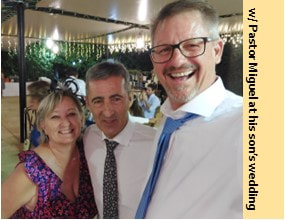 Several years ago, I began reading a series of detective mysteries by Louise Penny. The main character is Inspector Armand Gamache, an older, experienced police detective who is nearing the end of his career and is spending his final years mentoring newer, younger detectives. These are what we call his “legacy years” – the final few years of his career when he is still working, but also leaning heavily into imparting his wisdom and training up the next generation. I was particularly struck by Gamache’s “four statements” lesson. He says there are four things that lead to wisdom - four statements that you need to learn to say and to mean. I don’t know. I need help. I was wrong. I’m sorry. Billy and I were listening to a podcast this morning and the podcasters quoted these four statements. The hosts were discussing what it takes to build character, and they referenced the statements from Gamache as integral skills to showing maturity in character. As Billy and I were listening and talking through this, we reflected on our lives and work as cross-cultural workers. The ability to lean into these statements is in direct correlation to a CCW’s ability to be a humble learner in another culture. We are now entering our legacy years, the final 10 or so years when we are leaning heavily into training others, mentoring, coaching the next generation of cross-cultural workers, and focusing on leadership development. One of the biggest values that we want to see in CCWs is that they are humble learners – that they can enter a culture or a relationship with humility and with the posture of a learner. The ability to always see that there is something more to be learned in any given situation is critical, and the humility to admit that we are not the experts, we don’t have all the answers, and we have so much to discover and learn from others and their stories. The hard part is that we come from a culture that values knowledge, that rewards independence and a can-do attitude, and we are a culture that is accustomed to being the helper or the teacher, not the other way around. All of those are good qualities and they’re part of what makes America the powerhouse that it is in the world. But it’s also what associates America with power, and that sometimes hinders us from being able to build good relationships and go deep with people in other cultures. When we are seen as (or perceived as) always right or independent or people who have lots of knowledge and power, we are not seen as vulnerable or broken or in need of help or guidance. That attitude actually separates us from our neighbors. It also separates us from The Gospel. When we can be humble learners and more ‘real’ to our neighbors, we can begin to break down to perceptions and barriers. When I can feel free to make mistakes in my Spanish, I am showing my neighbors that I am not perfect. When I ask for help and admit that I don’t know how to do something, I’m showing that I don’t know everything (sometimes even the simplest things in this culture like how to pay a particular bill or cook a typical food). When I ask for help, I’m also honoring the other person with a statement of my own vulnerability and a statement of trust in their knowledge and ability to teach me. Perhaps the biggest one is the ability to say, “I’m sorry.” Sometimes we make mistakes. Sometimes our mistakes are hurtful. While I never intend to hurt anyone with my actions, sometimes my cultural ignorance gets in the way and I do, indeed, hurt someone. Saying “I’m sorry” is modeling a key component of the Gospel. Admitting that I did something that was hurtful is admitting my guilt or my sin, and asking for forgiveness is the obvious next step. When we model the process of admitting our faults and asking for forgiveness, we are living out a Kingdom principle in everyday life with our neighbors. The best place to start is practice. Practice saying these four statements. I promise, it won’t take long for a situation to arise in which you could say, “I need help” or “I don’t know”. I don’t think a day goes by when I don’t have cause to say, “I’m sorry” or “I was wrong” or “I don’t know” and “I need help”. In fact, I’m pretty sure that every single day holds reason to say at least some of these statements. Start with today. Keep your eyes and ears and heart open for the opportunity to practice one of these statements. I wonder where it might take you? I wonder how your relationships might be different if you start to practice using these? 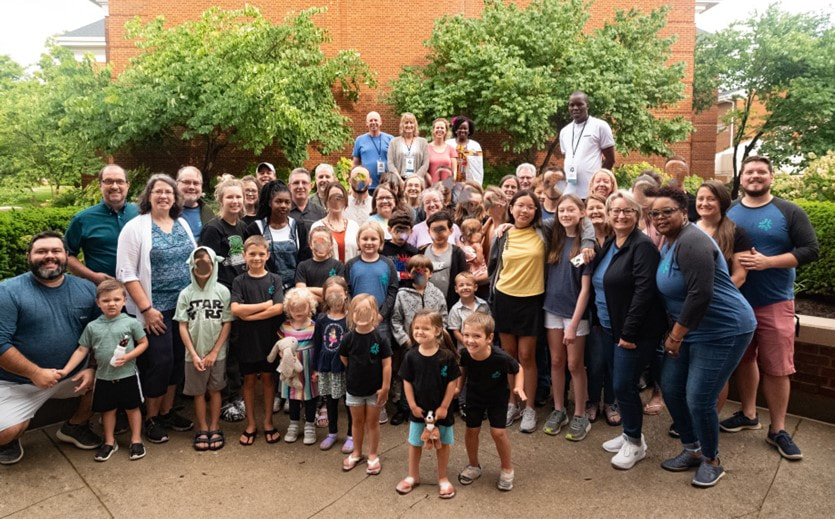 In July, we completed another training intensive for cross-cultural workers. This year, we held our 3-week training at Asbury Theological Seminary. TMS Global and Asbury have a long-standing partnership and it was a natural fit for us to work on the Asbury campus. (Some of you may recall the Asbury name from the recent awakening or revival that occurred on their campus earlier this year, bringing tens of thousands to their chapel from around the world and sparking renewed worship and service.) This year, I led a team of 12 facilitators with a shared experience of 150+ years living and serving as cross-cultural workers. Our facilitators have lived in Kazakhstan, Peru, Jordan, India, UAE, Spain, Kosovo, Liberia, and Kenya, and they have served in too many countries to name! With that depth of experience in various cultures comes a depth of stories and real-life connections that only our training can give. One of our trainees said, “It was a training like no other. I am leaving better than I was. This was an incredible time of learning and connection. When you get a room full of people who are passionate about Jesus, the transformation and learning comes naturally.” Our cross-cultural worker (CCW) trainees this year were also diverse. We hosted trainees from the USA, Kenya, North Africa, France and other places I cannot specifically mention for security reasons. Some of our trainees are already working in their places of service, while others are preparing to launch to fields in Asia, USA, East Africa, North Africa, and Europe. All of this diversity in the room also means there are various cultures, worldviews, languages, religious backgrounds, and values represented. This always makes for an amazing opportunity for learning and growing together! We have an intense curriculum that covers 75+ hours of sessions covering three threads: Cross-cultural ministry and skills, Spiritual Formation, Member Care / Personal Wellbeing. We incorporate daily scripture engagement and worship. One of the things that makes our program unique is the fact that alongside our adult training program, we run a program for children and families who will be serving cross-culturally. The children’s program follows the adult program topics in age-appropriate curriculum sessions. When adults are learning about Serving on Cross-cultural Teams or about Conflict Management and Resolution, the children’s sessions are also touching those same topics. A strong sense of community is a key factor in a comprehensive training program. While we are training individuals to go out and serve, we are also training people to live in community, to go out and be relational beings, as God created us, and to love their neighbors well. As we consider a strong training program, we also want to consider building a strong community of people who feel grounded and nurtured and supported, and who have the attitude of humble learners ready to learn from the community around them. “It was such a blessing to get a glimpse of the highs and lows of cross-cultural work. It’s a place where we formed community and a deeper understanding of God’s heart for us and for the nations,” said *Abraham. It is such a privilege and honor to have the opportunity to speak into the lives of cross-cultural workers serving around the world. “Humble learning was a very helpful concept to me. 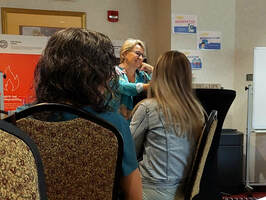 When we are talking to people in The States, we get asked this question often. It’s a good question, but it can also hard to respond to, mostly because of culture and vocabulary. First of all – let’s define what we are even talking about. Because for a lot of people, the word ‘ministry’ equates to a specific church program or task or goal that has very specific desired outcomes. Yes, and no. That is what our North American church culture and society have made the word to mean. But the word actually means a service. It is a service that you do in God’s name. In ancient times, a minister or administrator (see the minister root in there?) is someone who is caring for the business of the Kingdom in the name of the King. The King couldn’t be in all places at all times and oversee his lands and the well-being of his people personally, so he would appoint ministers or administrators to care for things in his absence. The minster would have to know the King’s mind and heart so well that he would be capable of making daily decisions and acting in the way that the king himself would act were he personally present. So, when you take the word out of our modern church cultural definition and look at in in the original form, it’s easy to see that any time that I care for anything that belongs to the King (Jesus), and I do it in a way that would be consistent with the heart and desires of the King (Jesus), then I am doing ministry. My work as Director of Training and Formation is to prepare global workers for the lives they will lead as they go out to into the world and share the love of Christ with their neighbors. Currently, we have cross-cultural workers in 36 countries on 5 continents. Those workers are reaching hundreds of different people groups and language groups. I make sure they receive the training and preparation they need as they learn to live in cross-cultural settings. Billy’s work as a care specialist for global workers is similar. He prepares people for the differences and the transitions they will face as they live cross-culturally and how those differences will effect their families, their relationships, and their own well-being. When things are difficult and they need extra support and counsel, he comes alongside people to help them navigate the rough patches and understand what cultural factors may be in play. While those things are definitely a ministry, we don’t see our work (training and caring for cross-cultural workers) as a full picture of the ministry we are involved in. Truthfully, the way we live our life is ministry. Living daily in our neighborhood in Spain is ministry. Having people over for meals, stopping on the street to talk with a neighbor, sitting with a friend as they tell about a problem they are having at work, walking through a transitional season with a neighbor who is recently retired… those are the daily examples of what we feel ministry looks like. When I live out my life in a manner that exhibits the heart and desires of Jesus, then I am a living ministry. When I care for my elderly neighbor by sitting with him and listening to his stories, I am caring for one of God’s children – someone who is living in the Kingdom of God with me. When we have coffee and listen to a friend who is struggling with some hard situations at his workplace, we are caring for him and allowing the Holy Spirit to give us eyes to see and ears to hear so that we can respond in a way that allows Jesus to be in that conversation. When people in our community see us confronting tough situations with grace and love (which is countercultural to the normal shouting, arguing, and escalation that is typical for conflict here), we are living out how the King (Jesus) would react to that same situation. By seeing our normal, everyday lives, our neighbors are seeing something ‘different’ and it is naturally interesting and attractive to them. It causes people to wonder and to come closer and to desire something different for themselves. It naturally leads to deeper conversation and to people asking more about our lives and why we live and love like we do. And that’s the real deal… that’s what ministry looks like for us. Just this morning, our neighbor (Paca) came to the door and asked if she could bring a friend over to see our patio. My neighbor’s son (Diego) recently did the tile work for us when we needed a major repair, and she wanted to show her friend. She told her friend, “They went out of town for work and they just gave my Diego their keys! Can you imagine!? They just gave him the keys and let him do the work while they were gone!” The friend was stunned. Billy replied, “It’s because we trust Diego. He’s a great guy and the absolute best at what he does. He’s a great neighbor. Very trustworthy. Of course, we gave him our keys.” Paca’s eyes were teary and she said, “That gives me goosebumps. To know that someone trusts my son that much. That’s special.” In a culture where trust is rare and loving your neighbor is a concept not easily won, our trust of Diego is something different and a testament to who we are and what we believe as we live out our faith. Our life is our ministry – living out the love of Christ with anyone and everyone that God puts in our path. It’s a step by step, day by day walking out of our understanding of what it means to know the heart of The King. “The training that we experienced last summer saved our lives. It changed the trajectory of everything for us. We were tired and burned out and so discouraged before we came to that training. It was transformational, not only for our ministry lives, but for our personal life, our family, and our marriage. It truly saved us. If we hadn’t changed direction and experienced this, we definitely would not be in ministry today, serving our neighbors and spreading the Gospel.” -*Lisa and *Wes Please join us in prayer for the upcoming training event at Asbury Seminary in Wilmore, Kentucky. We will be training many cross-cultural workers, as well as hosting several guest trainees from other ministries and organizations. This year, we will have trainees in the room who will be launching to live and serve in a dozen different countries. Some of those countries are highly sensitive, security risk areas. Please pray for this training to transform lives, both the lives of those in the room and the lives they will impact as they go out to serve the nations. Pray that they are empowered to go forth and be ministers in their neighborhoods, sharing their homes and their tables, listening to the stories of those around them, and sharing Jesus as they go. May they know the heart of the King and care for his people and his creation as they live out their lives in His service. 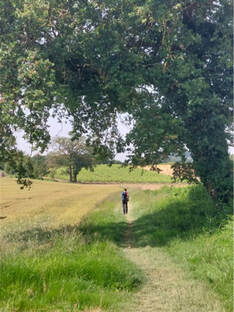 I just returned from 23 days of spiritual retreat walking the Via Podiensis (France) route of the Camino de Santiago pilgrimage. Normally, I’m leading a group of men as they walk the Camino, but this time, I walked for myself. It’s very different being a leader of a group versus walking for your own time of spiritual growth and reflection. When I’m in leader-mode, I’m thinking of risks, I’m thinking of each individual in the group and their health, I’m thinking of my leadership and how to disciple and walk people through their various stages of growth and formation. I have to worry about where the next water stop is, where we can stop to rest or stop for lunch, and whether or not I can find 15 available beds in tonight’s destination. But when I’m walking alone, all of those worries fall away and I can focus on what God is trying to say to me. I did have one companion this time - my long-time friend, Thomas. We are a lot alike, and so we make easy walking companions. And we both had the same goal and agenda. Walk. No worries about logistics. Just walk and hear from God. And we did! We heard from God in laughter, in nature, in our times of talking to each other, and in times alone. From Day One of this hike, I had been plagued with ear trouble. In the beginning, it was painful. After a few days, the pain was too much and I finally broke down and went to a small local hospital. They gave me antibiotics and drops for an ear infection and sent me on my way. A few days later, with no relief from the ear infection, I went to another doctor in another small town. I now had TWO ear infections and was given different antibiotics and drops. Yet, the problem persisted. By this point, we were within a few days of the end and the pain was mostly gone. I couldn’t hear out of one ear at all, but at least it didn’t hurt anymore. After making it home (23 days later) and seeing my doctor and then being sent to the ENT, we finally figured out what was happening and I was finally given the correct diagnosis and prescription. Within one day, everything is wonderful. I can hear and my ear feels clear again. The ear infection was actually a blessing to me. From the very first doctor, I had been prescribed drops that required me to lie down and keep the drops in my ear for at least 10 minutes, twice a day. This required me to be still. So I started using this time to listen (out of my good ear) to a daily devotional on my phone. I listen to Lectio 365, but I’m a sporadic listener, at best, mostly because I don’t take time to be still long enough to focus in and listen. However, during this Camino, I was forced to lie down twice a day and the devotionals are (surprise!) about 10-12 minutes long. Perfect! After weeks of doing this twice a day, it is now a habit and something that I really enjoy. Now that my ear is well, I’m still listening to the devotionals each day - morning and night - and reflecting on what God has to say to me through these devotionals. They have truly been a blessing to me and been a practice that is helping usher me into different rhythms of rest and reflection. I don’t wish an ear infection on you! But I do wish you times of stillness and new practices that help you listen to what God has to say to you. ~Billy  We love good Indian food. Sadly, there aren’t any Indian restaurants in our town. They are easily found in the large cities, but not in the small Spanish villages. However, there is an exception. About 30 minutes away from us, there is another small village that has an amazing Indian restaurant. Over the years, we have gone many times and have built a sweet relationship with *Baashir. Baashir is from Pakistan. He immigrated to England several years ago and worked in London until he decided to come to Spain and start his own restaurant. He and a few friends opened the Mughal Indian restaurant in a tiny village with the whooping population of 5500. We have always been intrigued (and a little astounded) by Baashir and his restaurant. How on earth are they staying open? How could they possibly have enough business, especially in a tiny pueblo in rural Spain? Spanish culture is not known for accepting new things or new people, and Spaniards are particularly traditional when it comes to food. In the large metropolitan areas, variety is more readily available due to globalization and a more diverse population. But Spanish pueblos and villages are notorious for ostracizing outsiders and shutting out new businesses or ideas. Not only that, but this little band of entrepreneurs are immigrants (a very tough situation in rural Spain), they don’t look like the locals, they don’t speak Spanish well, AND they don’t serve traditional local foods?! So many things stacked against them. As immigrants ourselves and as people who train others in living cross-culturally, we know the hardships and difficulties these guys are facing. We have often thought of Baashir and his friends and lifted silent prayers that God would give them favor. “Please, God, let them find friends and community. Let the local population treat them with kindness. And please let them feel loved as they seek to live and work in this tiny town. May the work of their hands prosper.” Over the years, Baashir has opened up to us as we eat at the restaurant. He has shared struggles with us about loneliness, especially as it relates to his wife. His wife was left behind in Pakistan, and he has been desperately trying to bring her to Spain. Every time we go to the restaurant, we ask how he is doing and how things are progressing with the paperwork to bring his wife over. He always smiles, folds his hands in the way of his culture, and thanks us for remembering his family and for asking about them. Finally, in the Spring of this year, he responded with great joy. “My wife is coming! She will be here soon! I am so excited to finally have her at my side.” In June, we went to eat at Mughal’s. We were heading into a very busy season with a hectic schedule, and we knew that this would be our last chance to drive over to Baashir’s place and relax and eat great Indian food for a couple of months. While sitting at our table and chatting with Baashir, we asked how his wife was doing. With a look of desperation and concern, he said “She is finally here, and I am finally complete and happy to be with her. But she is having a very hard time. She knows no one. She cannot speak Spanish or English, only Urdu. Because of our culture and religion, she cannot be around other men, but there are no women here who can speak her language or who understand our culture. In our country, all the women do things together and have each other. But here, she has no one and I am at the restaurant all day and night. She is very lonely.” Baashir was obviously hurting for his wife, *Asali. We talked a bit about how hard it is to learn to live in another culture, and how hard it is when you do not have community or understand anything around you. In that moment, we were treading on common ground. Each of us has experienced the struggles and challenges of being the outsiders and trying to find footing in a new place. This conversation felt like a divine appointment and holy ground. Just then, Baashir said something that made it apparent that God was orchestrating this moment. Before Baashir left our table to go tend to other customers and the kitchen, he said, “Friends, I know you are praying people. Would you please pray for my wife and her happiness?” We were so honored at this request, but also astonished. How did Baashir know that we are praying people? We are just customers in his restaurant who make it a point to talk to him and listen well. But we have never prayed with him or talked about specific spiritual things. How does he know? Of course, we agreed to pray for Asali. A bit later in the evening, he swooped by the table in his rush to tend to customers in the busy restaurant and said to me, “My wife is in the car just outside. She rides with me to make deliveries so we can be together. Would you be willing to come meet her?” Billy was forbidden by their culture to see her, but I got up from the table and followed as Baashir led me to his car. His wife got out of the passenger side. She was dressed in her traditional shalwar kameez clothing and was fully covered, including head scarf and face covering. All I could see were her eyes. She was obviously terrified and confused. Why was her husband bringing this strange woman to the car to meet her? She could not understand my words, nor could I understand her. But the look on Baashir’s face as he presented his bride to me was priceless. He loves this woman! He was so proud to present her to me. After a few awkward words, Asali and I said our goodbyes and then Baashir hit me with a parting request. “Would you please pray for us to have a child? We are ready and want to have the blessing of a baby to start our family. Please pray that God would bless us.” Again, I was honored by this request, and surprised that Baashir could see and know that we are praying people. After a couple of busy months, we visited the restaurant again, so excited to finally be back and to have some amazing food and see Baashir. We had thought of him and Asali often and had worried for her transition to Spain. We prayed that she had not suffered too terribly as an immigrant and a woman with no language skills and no community, but we feared that she had not faired well. Imagine our surprise when Baashir came bounding to our table and brought Asali out with him! She was visibly transformed – no head to toe covering, no fearful look in her eyes, and SMILING! Baashir said, “Look at my beautiful wife, how well she is! I have had to learn to relax my cultural ideas about women so that she can thrive. I have to be okay with her coming out in public, with other men being able to see her face and talk to her, with her being at the restaurant and working with us. It has been a very big change for me, but look at the change in her! And, Friends, we have big news. We are going to have a baby!” Please pray with us for Baashir. Pray for his wife, Asali, and this new addition to their family. Pray for their continued transition to a different culture and all that it entails. Pray that the work of their hands will prosper and that the transformation God is doing in their hearts will continue to grow. And please join us in thanking God for this sweet relationship, and that His countenance and light is somehow visible to others through us – even as we eat in a restaurant and listen as people share their life stories with us. Thank God for Baashir’s ability to see that we are “praying people” and for his vulnerability in asking us to pray for him and his concerns. September has been a month of events!
We began the month by hosting another training intensive for cross-cultural workers - this time in Spain! Over the last couple of years, we have had several CCWs who could not attend our training in the USA due to Covid and vaccine travel restrictions (they are not USA citizens), or who have not been able to attend due to visas or scheduling issues with their ministry contexts. So, we decided to host a special training in Europe specifically for those people! This allowed these workers to finally receive the training they needed, as well as allowing them time together to build relationship and community and bond with each other - something that we know is vital to their long-term resiliency in the field. These workers serve in Egypt, Spain, Germany, Thailand, Costa Rica, and the USA. Lead Develop Care Leadership training - We hosted a leadership training event for TMS Global in our town in Spain for twenty-four cross-cultural workers who serve in leadership positions around the world. This training focused on a shepherd model of leadership using three specific areas of competency for leaders: Lead, Develop, and Care. It was a rich time of training and learning alongside other leaders, as well as spending time talking about our specific contexts and needs and growing together in community. Refugee aid: School Supplies Project - We continue to support refugees from Ukraine and other countries in crisis, as well as continuing to help support and resource refugee aid workers. In September, we were honored to finance efforts to make sure that refugee school children had all the necessary supplies for the beginning of the school year. Billy and I are both former elementary school teachers and we know the value of having children start out the year with everything they need. And, of course, we place a high value on education and on helping teachers and children succeed. So this project was a win, win, WIN all the way around for us! Together with our cross-cultural worker partners who work directly with these refugees, we were able to distribute 1000 backpacks with school supplies to refugee children from Ukraine and from Afghanistan! We know that education is a key component to the future of these children, and we want to make sure that they have what is necessary to find success in their new surroundings. Refugee aid: Housing Project in Romania - You may remember that Billy traveled to Romania earlier in the Spring to partner with our friends there who are housing Ukrainian refugees. They also cross the border several times each month to take vanloads of food and supplies to pastors who are in war-torn areas and who have chosen to stay and serve their congregations and communities. We continue to work with these refugee aid workers and continue to help via care and resources. This month, they have taken on another building for housing refugee families. The immediate needs are to make a few repairs, furnish the rooms, and raise funds for the ongoing rent and utilities. Thanks to your generosity to the special fund for refugees, we were able to commit to paying the rent on this refugee house for 15-20 people through the end of the year! Thank you for helping these families have a safe haven and food on the table. Thank you for being a part of this important work and for being a part of our ministry team! ~ Laurie & Billy |
Laurie DrumIn my USA life, I was a teacher in Texas for 15 years. I was also a professional photographer, a soccer mom, a horsewoman, and the neighborhood hospitality queen. I did "Joanna Gaines farmhouse style" before Chip and JoJo were even a thing - we restored an 1884 Victorian farmhouse in small town Texas and did shiplap walls until I thought I'd go crazy. I taught at NASA, scuba dived with astronauts in training, and studied animals at Sea World for educational purposes. I've tried just about everything, because I have an insatiable need to know if I can do it! Never underestimate a Texas girl in cowboy boots! In 2006, my husband Billy and I became cross-cultural workers (CCWs) with TMS Global. For five years, we served in three rural Quechua Wanca villages in the Andes of Peru. And when I say rural, I mean RURAL - like no potty! I spent my days in Peru learning to live a Quechua lifestyle in a rustic adobe house - cooking Peruvian foods, sewing with Quechua women, raising my chickens and goats and pigs, and planting my gardens. Now I live my life in small town Spain, serving other cross-cultural workers via teaching and training and care, and helping displaced people to navigate their new reality in Europe.
I'm passionate about fostering personal growth, growth in community, and growth in The Kingdom. Walking alongside others and helping them to use their unique design, their gifts and strengths and maximize their abilities to fulfill their God-given purpose - that's what makes my heart sing! Archives
March 2024
Categories |
What We Do About Us Media Contact Us
Copyright © 2013 ~ Billy Drum, 4717 Shoal Creek Dr., College Station, TX 77845 ~ 979.985.5238

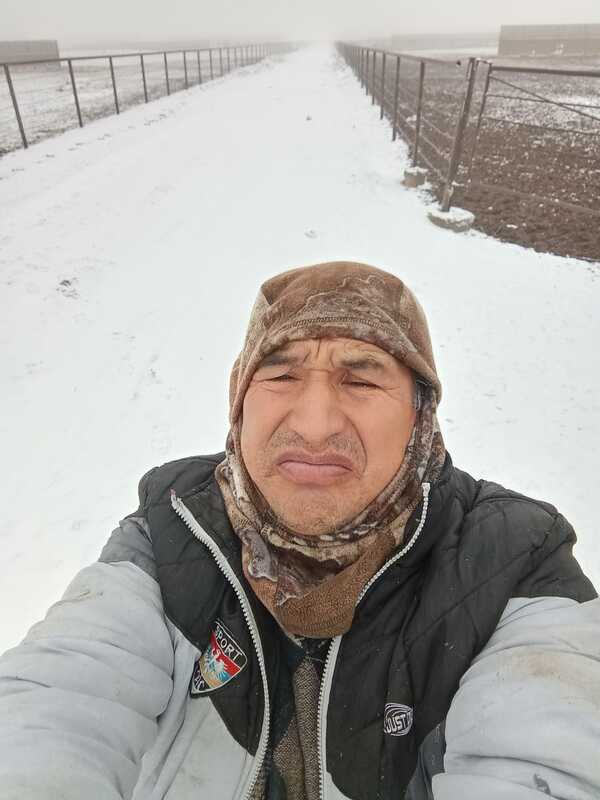
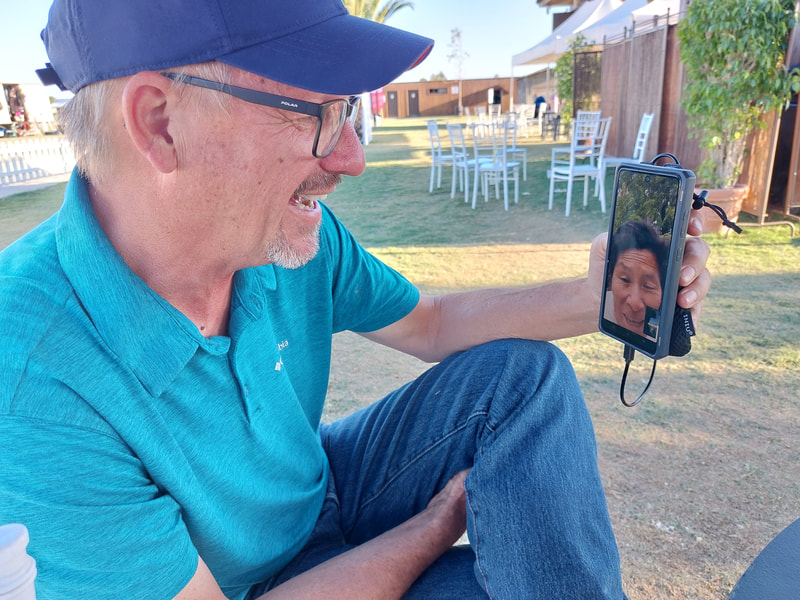
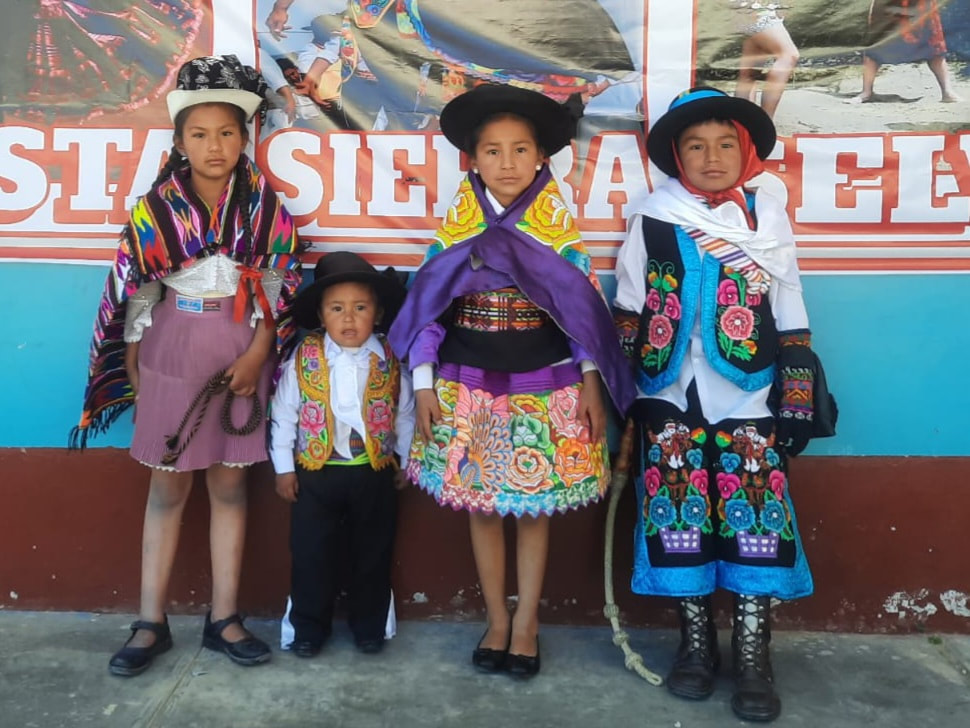
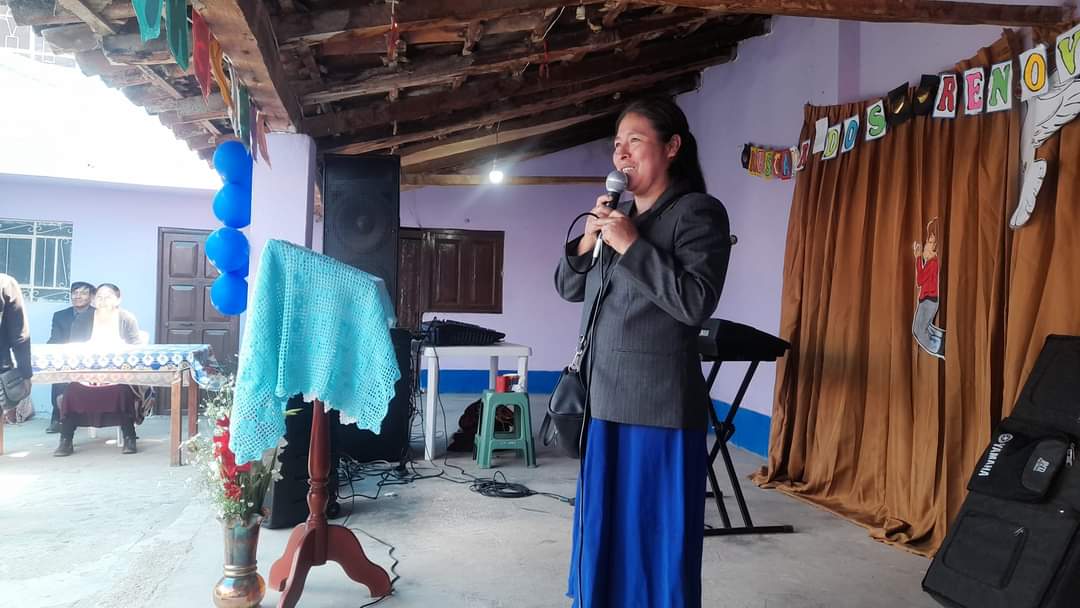
 RSS Feed
RSS Feed

